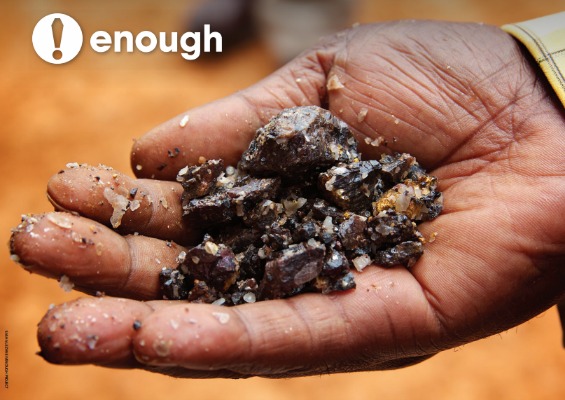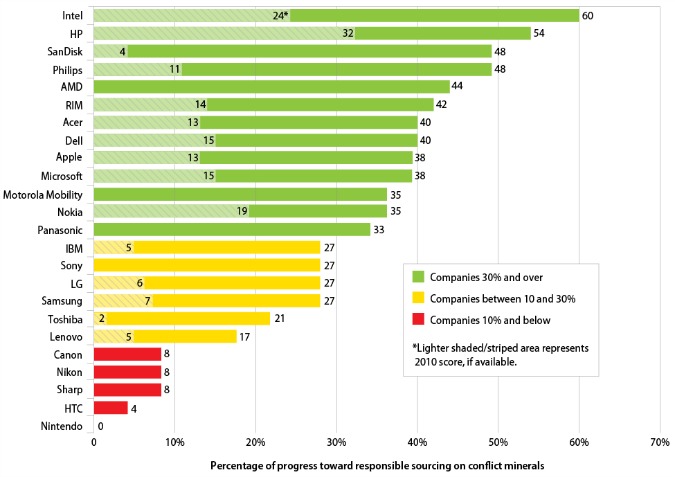The Enough Project, part of the non-profit organization Center for American Progress, has released their second report ranking electronics companies by their use of conflict minerals. Conflict minerals, such as tin, tantalum, tungsten and gold, are used in nearly every electronic device and often their demand funds war groups in eastern Congo.
The Enough Project hopes their report, "Taking Conflict Out of Consumer Gadgets: Company Rankings on Conflict Minerals 2012," will help raise consumer awareness as well as encourage companies to further improve their efforts.
Intel moved up one spot, taking first place, followed by HP and SanDisk as the top three companies making the most effort to limit the use of conflict minerals. Also in the green—companies with 30% or higher progress towards responsible sourcing—are Microsoft and Apple, both companies more than doubling their score since 2010. Remaining at the bottom of the list, without any improvement since 2010, is Nintendo, which has made no known effort to trace or audit its supply chain.
The progress report measures improvement in three main areas: tracing, auditing and certification. Tracing involves following the supply chain in order to locate the mineral sources. Seven companies, starting with Apple, have made this information publically available, and thus provided a map for other electronics companies to follow. Auditing requires 3rd-party audits and getting certified means making a commitment to helping the communities near mines in the Congo.
There are also several areas that the Enough Project pinpoints as still needing improvement, including buying from conflict-free smelters, ensuring that all smelters are audited and encouraging other industries, such as jewelry, automotive and industrial machinery, to get involved. The report recognizes, however, that that improvements are largely attributed to direct consumer action, so pressure to improve other industries must be a joint effort between electronic companies and consumers.
United States legislation, fueled by consumer activism, is largely responsible for the rapid improvements over the past two years. The Dodd-Frank Wall Street Reform and Consumer Protection Act, signed by President Obama in 2010, requires companies that use tin, tungsten, tantalum or gold to trace the origins of these minerals and perform due diligence and audits if they originate in the Congo. Companies are already making large improvements to their mineral sourcing process even though the final rules of this new act have not been issued.
The Enough Project's report is released just days before the Securities and Exchange Commission (SEC) upcoming vote on the rules for the conflict minerals law on August 22nd. "The SEC should ensure that retailers and all firms that use the minerals are covered by the rules and that there is not a long phase-in period," said Sasha Lezhnev, co-author of the report and the Senior Policy Analyst for the Enough Project. "Otherwise, the Intels and HPs will be left unfairly holding the bag for a problem that belongs to thousands of companies that have been turning a blind eye to this problem for years.”
Sign up to receive The Snapshot, a free special dispatch from Laptop Mag, in your inbox.


